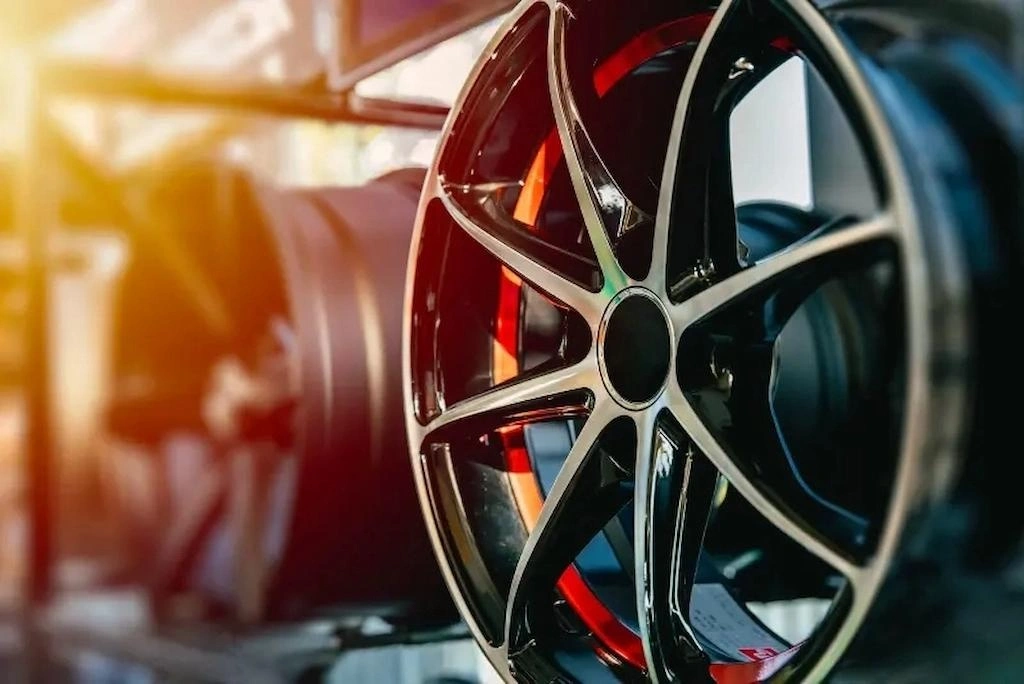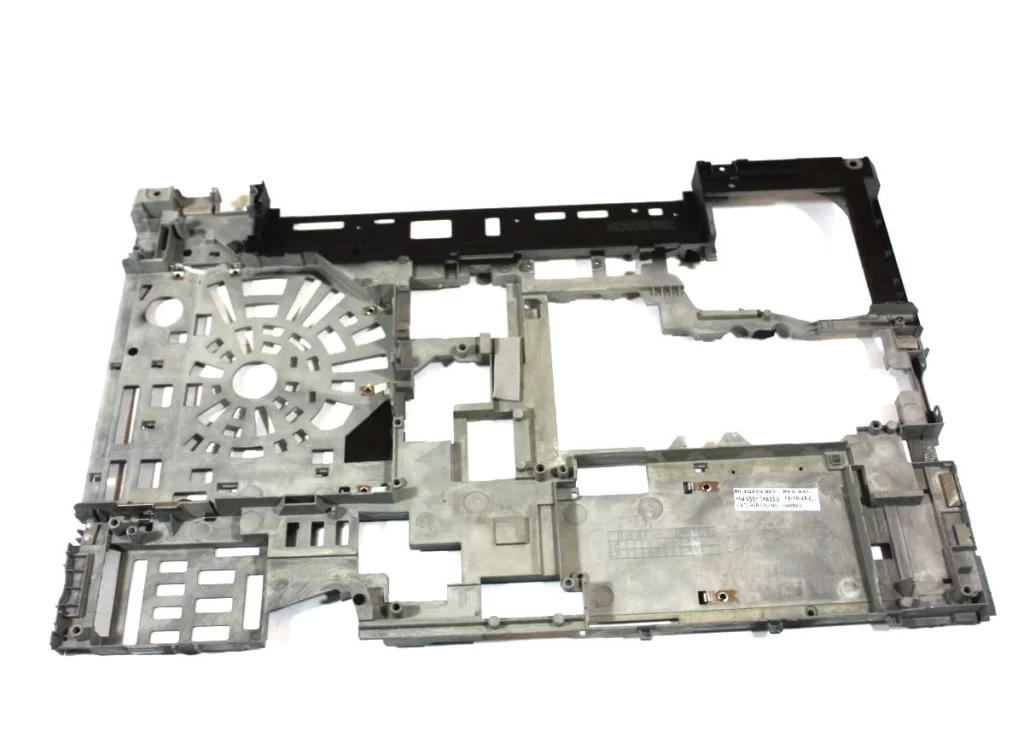Magnesium is a lightweight metal that is widely used in automotive, aerospace, medical, sport, defense, and other industries. Its excellent machinability, strength-to-weight ratio, formability, and corrosion-resistance properties are key reasons behind its widespread application.
Do you need magnesium alloy products or components and confused about which manufacturing methods to use? Its high flammability makes it challenging to machine; casting requires a special mold setup, and fabrication approaches also include the risk of ignition spots. However, special consideration and expertise can deliver complex magnesium products with designed specifications.
In this article, we will discuss manufacturing magnesium alloy products, special considerations, and how to customize the products.
What is Magnesium Alloy?
Magnesium alloys are materials composed primarily of magnesium combined with other elements such as aluminum, zinc, manganese, silicon, copper, rare earths, and zirconium. These alloys are valued in manufacturing for their lightweight properties, high strength-to-weight ratio, and good machinability.
Read More: What Is Machinability
Magnesium AZ31 alloy
Magnesium alloys like AZ91 and AZ31 are prevalent in manufacturing. AZ91 has excellent castability, and AZ31 is formable and can be used for sheet metal products.
These lightweight structural metals are especially beneficial when weight reduction directly impacts performance, such as aerospace and automotive.
What Are the Most Popular Magnesium Alloys?
The table below outlines common magnesium alloys used in manufacturing;
| Alloy | Composition | Key Properties |
| AZ91 | ~9% Aluminum, ~1% Zinc | High strength-to-weight ratio, good corrosion resistance. |
| AZ31 | ~3% Aluminum, ~1% Zinc | Excellent formability and weldability. |
| AM60 | ~6% Aluminum, ~0.13% Manganese | Good energy absorption and impact resistance. |
| WE43 | ~4% Yttrium, ~3% Rare Earths | High strength and creep resistance at high temperatures. |
| ZE41 | ~4% Zinc, ~1% Rare Earths | High casting integrity, strength, and ductility |
Next, let’s discuss what kinds of products are made with magnesium alloys;
Try Prolean Now!
Product 1: Magnesium Alloy Wheels
Magnesium alloys are lighter than aluminum when making automotive wheels. For example, mountain bike magnesium alloy wheels reduce the overall weight and provide comfortable riding. It allows for quick acceleration and braking. Consequently, these are also favourable for cars, scooters, etc.
Magnesium wheel
Metal casting is used to make magnesium alloy wheels, typically low-pressure magnesium die casting. Moreover, rare arms and covers are also made with magnesium.
Custom magnesium alloy wheel for bicycle
You can make both types of magnesium alloy wheels: one-piece wheels and multi-piece wheels. In a single-piece model, the disk and the rim are built together, whereas two or more pieces are assembled for a multi-piece wheel.
Product 2: Magnesium Alloy Skateboard Trucks
Magnesium alloy skateboard trucks
A skateboard truck is basically a T-shaped entity mounted on the bottom part of the skateboard deck. It is located at an isometric angle concerning the skateboard wheels. This structure helps the skateboarder make turns and stabilizes the skateboard while in motion.
Either casting or CNC machining can be used to make skateboard trucks from magnesium alloys. Furthermore, the main advantage of using magnesium alloy skateboard trucks custom is the weight, which improves performance and endurance over time. Additionally, it serves with more strength and durability.
Product 3: Magnesium Gearbox Housing
Magnesium gearbox housing
The gearbox housing in a vehicle protects the transmission parts. It provides external shielding to prevent harm to the internal components due to their low density and favourable mechanical properties.
- Casting of Alloy ZL101
- CNC machining is also suitable for prototypes and small batches
- Medium-to-large size gearbox housings
Other benefits include gearbox housings, which have advantages like weight reduction contributions and better fuel consumption.
Product 4: Laptop Chassis
Laptop chassis
Chassis are critical components of laptops and other electronic items; they organize the internal hardwares and protect them from physical damage. The casing also influences the compactness of the laptop’s design.
It can be made from magnesium alloy, particularly for premium range laptops, for its attractive appearance, strength, and lightness. For instance, Acer’s Swift Edge 16 laptop includes a magnesium-aluminium alloy chassis. Lenovo ThinkPad X1 Carbon, Microsoft Surface Laptops and Tablets, and other few other consumer electronics are also made with aluminium-magnesium alloys.
Try Prolean Now!
Advantages of Magnesium Alloy Products
Magnesium automotive parts
First, magnesium alloys are approximately 33% lighter than aluminium, 50% lighter than titanium alloys, and 75% lighter than steel; this is the key benefit. Additionally, its machinability allows for crafting into complex shapes and intricate detailing.
The benefits of aluminum alloy products are as follows;
Strength and Performance
The high mechanical strength (Tensile 280 MPa, Yield 300 MP )of magnesium alloys makes the product stronger and more reliable, whereas cost-reduction helps to optimize the product for better efficiency.
Cost-effectiveness
Using magnesium alloys to manufacture your industrial product can save on material costs. Their prices are similar or slightly higher to aluminum alloys and lower than steel alloys.
Vibration Damping
Along with strength, magnesium alloys provide excellent vibration-damping properties. Typically, it is more than ten times steel and aluminum alloys.
Thermal Conductivity
You can make products with good thermal conductivity, typically 123 to 142 W/(m·K). Magnesium alloys can be a viable option for applications requiring heat dissipation from hardware and internal components of machinery or equipment.
Electromagnetic Shielding
Magnesium products also provide good shielding against electromagnetic waves, which is beneficial in applications required to prevent electromagnetic interference—for example, aerospace and electronics components.
What Are the Disadvantages of Magnesium Alloys?
Magnesium fire during machining
After examining the advantages, let’s look at the other side of magnesium alloys; they also have drawbacks. Their flammability and corrosion in harsh environments are the primary concerns.
Disadvantages of magnesium alloys include;
Risk of Ignition
Especially during CNC operations like milling, turning, drilling, and grinding, magnesium alloys pose a risk of fire ignition at approximately 470°C.
Prone to Corrosion
Corroded magnesium alloy
Magnesium has more affinity to oxygen and chemical reliability, which reduces corrosion protection capability. This can be prevented by protective finishing, such as anodizing, chromate conversion coating, and micro-arc oxidation.
Weak Properties at High Temperatures
High operating temperatures can weaken the mechanical properties of magnesium components, reduce their strength, and make the surface brittle.
Customization in Magnesium Alloy Products
Like other CNC machining materials, you can make custom parts and products from magnesium alloys. In fact, they have higher machinability than aluminum and stainless alloys. Using CNC machining processes allows you to create parts and products with custom dimensions, features, aesthetics, etc.
Examples of custom magnesium products are bicycle frames, portable medical device casing, car wheels, and custom camera housing for drones.
Some considerations are critical when transforming your custom designs into physical forms made with magnesium alloys.
- Choose the right magnesium alloy to fulfil your performance requirements for the desired application.
- Optimize CNC machining parameters like feed and speed.
- Choose compatible geometry and material; carbide or HSS tools are recommended.
- Process and personal safety are essential; ensure proper chip extraction, lubrication, and stand-by or automated fire suppression systems.
Moreover, technical capabilities and material supply chain are other aspects that leverage the customization of magnesium alloys. For example, only muti-axis (3,4,5 axes) CNC systems can craft intricate geometrical contours with tight precision.
Established automotive, aerospace, electronics, and companies from other industries often prefer China as it produces more magnesium than any other country. The robust manufacturing infrastructure and expert human resources also provide quality and cost benefits.
Outsourcing Custom Magnesium Alloy Products from China
Suppose you have a unique product design that is unavailable on the market. In that case, you must look for a magnesium alloy products company in China that provides machining and other manufacturing solutions. So you can get your products ready at your door and meet all designed specifications.
ProleanTech has been providing CNC machining services for magnesium products and prototype designs since its early business years, serving diverse industries. Our advanced CNC machining and Surface finishing facilities can make your custom parts with utmost precision. Meanwhile, you can also get DFM optimization feedback from our engineers before starting the project.
Try Prolean Now!
Summing Up
To conclude, magnesium alloys are the best for applications where weight reduction is essential while maintaining the necessary structural integrity. In automotive, parts such as wheels, housings, transmission cases, and engine blocks are made from magnesium alloys to reduce weight and improve fuel efficiency.
Aerospace uses magnesium for structural components, such as mounts for aircraft engines and control hinges. Similarly, it benefits other industries like electronics, medical equipment, and defense.
Furthermore, choose the right manufacturers with the required capabilities to produce custom magnesium alloy parts.
FAQs
Why are magnesium alloy wheels better than regular aluminum wheels?
Magnesium alloy wheels are lighter than aluminum for the same size and strength, which allows for weight reduction in vehicles and better fuel efficiency.
Can I get custom magnesium alloy products?
Yes, you can get custom magnesium products via CNC machining and die-casting manufacturers. Incredibly advanced machining techniques like 5-axis milling can produce magnesium products with custom shapes, sizes, contours, surface textures, and other complex features.
How do I maintain magnesium alloy products?
The high chemical affinity of magnesium alloy makes the products susceptible to corrosion, so you can use protective finishing to maintain them, such as anodizing, metal coating, electrochemical plating, etc.
Is magnesium alloy the same as aluminum?
No, magnesium alloy and aluminum are entirely different materials. However, both are favourable for lightweight structural parts across industries; magnesium is even 33% lighter than aluminum.
Why is magnesium expensive?
Magnesium alloys are relatively costlier than aluminum as the extraction of raw magnesium is energy-intensive, and its reflective nature requires special consideration during machining.















0 Comments